Disability Rights Florida Blog
November is Native American Heritage Month. Tune in throughout November 2023 to learn about some incredible Deaf, disabled, and chronically ill Native leaders, artists, and activists who are Indigenous to or currently residing in the United States.
 Sarah A. Young Bear-Brown
Sarah A. Young Bear-Brown
Meet Sarah A. Young Bear-Brown. Her Meskwaki name is tti-ka-mi-ge-a. She is a member of the Sac and Fox Tribe of the Mississippi in Iowa—the Meskwaki Nation. She is a mom to two kids, an ASL storyteller, a Deaf interpreter, and a motivational speaker. Sarah attended Iowa School for the Deaf and United Tribes Technical College. She proudly represents two different worlds, as a Meskwaki and a Deaf woman. Sarah has been creating beadwork for over 20 years and owns a small business called SAYBB Creations Beadwork. She comes from a family of beadworkers and follows her mother, Mary Young Bear's path as a fifth-generation beadwork artist.
When discussing her identities and art, she shares:
"These two unique cultures have had a strong impact on who I am and the art I create. My medium of choice is clay, I enjoy rolling clay out and shaping forms into pieces that reflect day to day images with a sense of humor, but I have other mediums I love to work with as well. While going to school at United Tribes Technical College, I was introduced to small sculpture with wire, I became fascinated with the freedom of the medium, and made many pieces reflecting the human form with more success than I expected. Currently, I find myself working full time with small, glass seed beads. I love doing beadwork because my whole family does beadwork and it’s a huge part of our home life. I enjoy making accessories like earrings, necklaces, and bracelets. Some of my pieces that mirror photographs of people."
Alongside her artwork, she currently serves as the vice chair for the Native American Caucus for the Iowa Democratic Party, is a member of the Deaf Poor People Campaign, and is vice president of the Cedar Rapids Association of the Deaf. She is a firm believer in human rights and has been an advocate for the Indigenous Deaf Community since 2014. Sarah founded Gathering of Deafatives, an organization that supports the Indigenous Deaf community. She has also actively advocated and protested against the No DAPL (Dakota Access Pipeline) at Standing Rock, Line 3 in Minnesota, and supports the MMIW (Missing and Murdered of Indigenous Women) Movement.
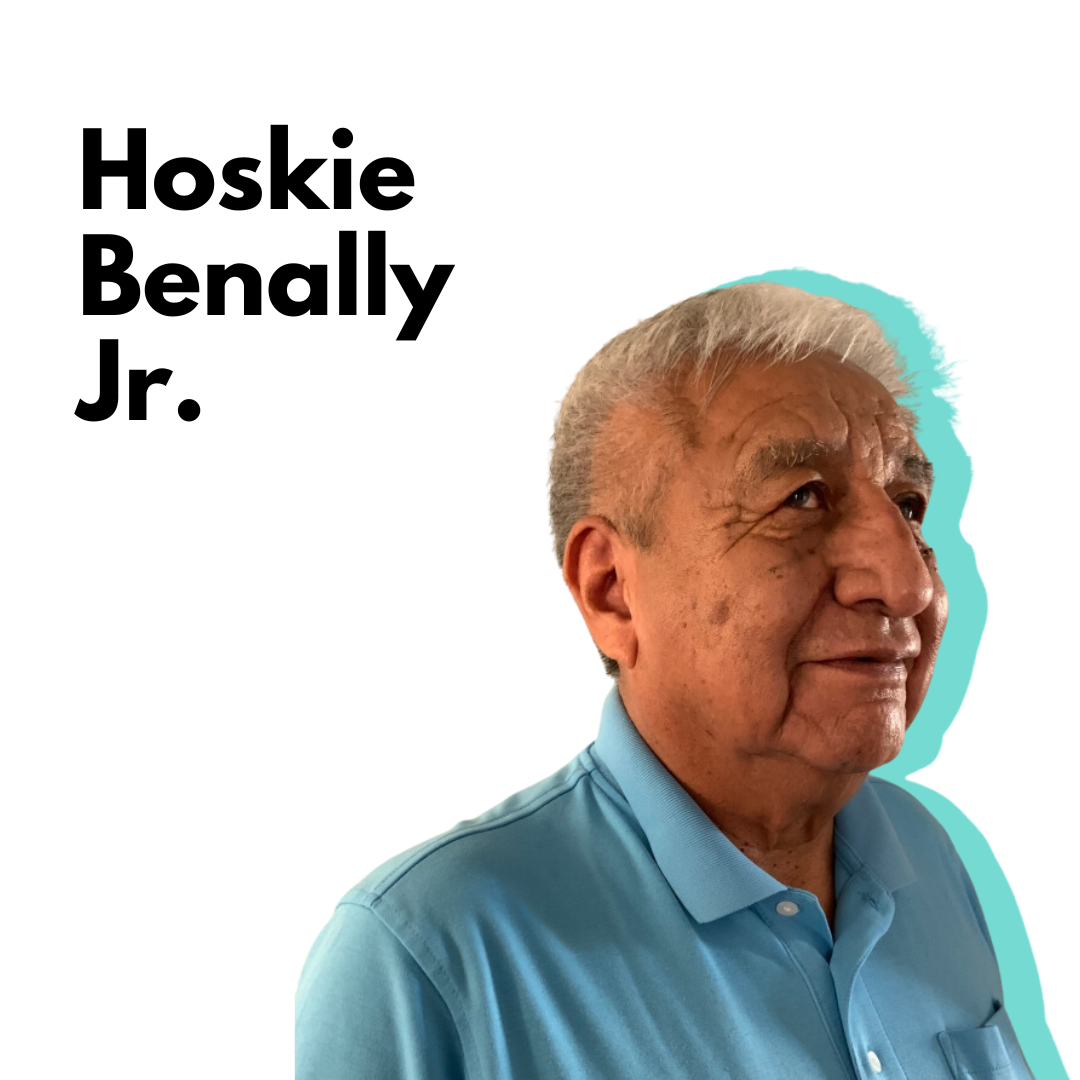 Hoskie Benally Jr.
Hoskie Benally Jr.
Meet Hoskie Benally Jr. Hoskie Benally Jr. is a legally blind member of the Navajo Nation. He works as a Community and Government Liaison at the Native American Disability Law Center, advocating for disability systems with the Navajo Nation and other Native American Tribes. He is also a Council Member of the National Council on Disability. Benally, who has a Bachelor's degree in Sociology from Brigham Young University, has an impressive track record of working with Native American youth and people with disabilities. He is currently the President of the Navajo Nation Advisory Council on Disabilities and is involved with the National Congress of American Indians Disability Sub-Committee. Benally has also previously served as a Vocational Rehabilitation Counselor and as a Member of the New Mexico Developmental Disability Planning Council. Grounded in Navajo tradition and fluent in Navajo, Benally is an experienced cultural instructor. Before joining the Law Center, Benally was the CEO of a Residential Treatment Center that successfully integrated Navajo culture into western-based mental health treatment.
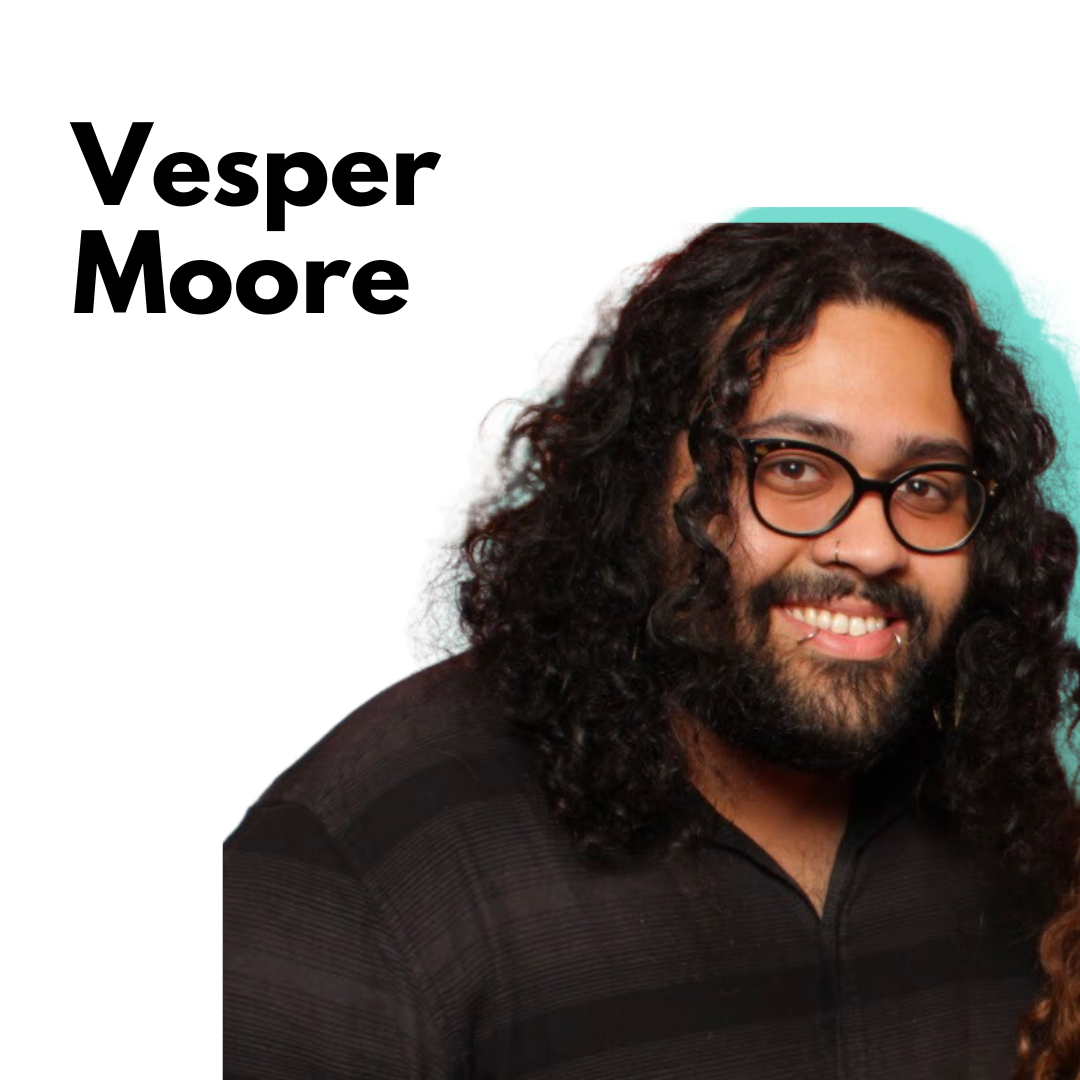
Vesper Moore
Meet Vesper Moore. They are an Indigenous political activist, leader, organizer, public speaker, and educator in the radical mental health and disability rights movements. Vesper concentrates on building social movements and public knowledge to facilitate and sustain systems change. They have supported the development of mental health organizations in different parts of the world and have fought to uplift civil rights in the United States.
Vesper has brought the perspectives of disabled people and people with mental health challenges to national and international spaces with their advocacy. Vesper works with both the United States government and the United Nations in shaping strategies around trauma, intersectionality, and disability rights. They have been at the forefront of legislative reform to shift the societal paradigm surrounding mental health.

Jen Deerinwater
Meet Jen Deerinwater. Jen is a bisexual, Two-Spirit, multiply-disabled, citizen of the Cherokee Nation of Oklahoma and an award-winning journalist and organizer who covers the myriad of issues hir communities face with an intersectional lens. Jen is the founding executive director of Crushing Colonialism, and a 2019 New Economies Reporting Project and a 2020 Disability Futures fellow.
Jen received a B.A. from the University of Southern California in Gender Studies and Political Science with an emphasis on American Federal Government, a Graduate Certificate in Women in Politics and Public Policy from the University of Massachusetts-Boston, and a M.S. in Communications Management from Simmons College.
Jen is a contributor to Truthout and hir work has been featured in a wide range of publications, including Bitch, Rewire.News, In These Times, and New Now Next. Jen’s writing is included in the anthologies Disability Visibility: First Person Stories from the Twenty First Century, We Organize to Change Everything: Fighting for Abortion Access and Reproductive Justice, Property Will Cost Us the Earth: Direct Action and the Future of the Global Climate Movement, and Crip Authorship: Disability as Method. Jen is also hard at work on two books, including a 2LGTBTQIA+ anthology on faith and spirituality, Sacred and Subversive.
Jen has been interviewed for numerous outlets on hir work and The Advocate named Jen a 2019 Champion of Pride. Jen is also a 2022 member of the Susan M. Daniels Disability Mentoring Hall of Fame. Jen currently serves on the Ending the HIV Epidemic among Urban Natives Community Advisory Board with Johns Hopkins University and Native American Lifelines.
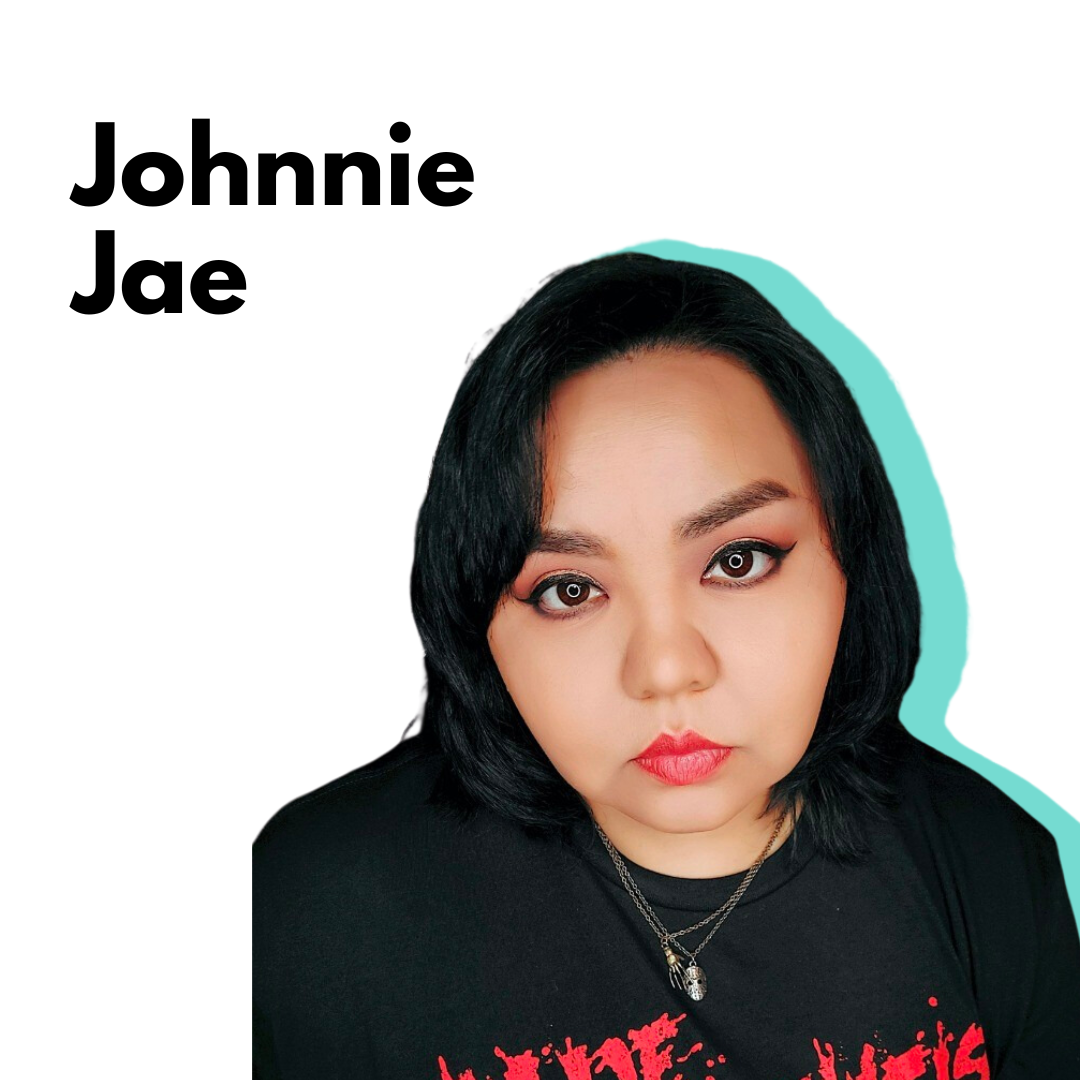
Johnnie Jae
Meet Johnnie Jae. With an indomitable spirit and creative vision, Johnnie Jae is a dynamic advocate, artist, writer, speaker, mentor, and media creator with a penchant for mischief. As a Disabled, Asexual Native woman, representation matters deeply to Johnnie. She firmly believes we can challenge and dismantle harmful stereotypes and misinformation by reshaping narratives and creating platforms and opportunities for diverse voices while fostering understanding and forging pathways to a more inclusive and equitable world.
At the forefront of her work is A Tribe Called Geek. This groundbreaking media platform celebrates Indigenous Geek Culture, shining a spotlight on the contributions of Native peoples in Pop Culture and STEM. Through A Tribe Called Geek, she has cultivated a vibrant community that showcases Indigenous creativity, challenges stereotypes, and inspires future generations of Native artists, writers, and innovators.
Jae is also the founder of Grim Native, a platform born out of a deep love for horror and a profound commitment to recognizing and celebrating Native representation within the genre. Embracing the dark allure of the macabre, Grim Native seeks to create a space where horror enthusiasts can explore the chilling depths of fear while acknowledging the vital significance of Indigenous voices and stories within the genre.
Beyond her journalistic contributions, Johnnie Jae is a fierce advocate for Indigenous and human rights. Her activism encompasses various crucial issues, including youth empowerment, mental health education, suicide prevention, disability justice, and racial equity. By leveraging her platform and partnerships, she works tirelessly to address systemic injustices, amplify underrepresented voices, and promote social change.
With a talent for seamlessly blending humor, pop culture, and advocacy, Johnnie captivates audiences as a speaker, panelist, and commentator. She has graced stages, podcasts and media outlets worldwide, sharing her experiences, advocating for Indigenous and human rights, and inspiring others to embrace their own unique voices and stories.
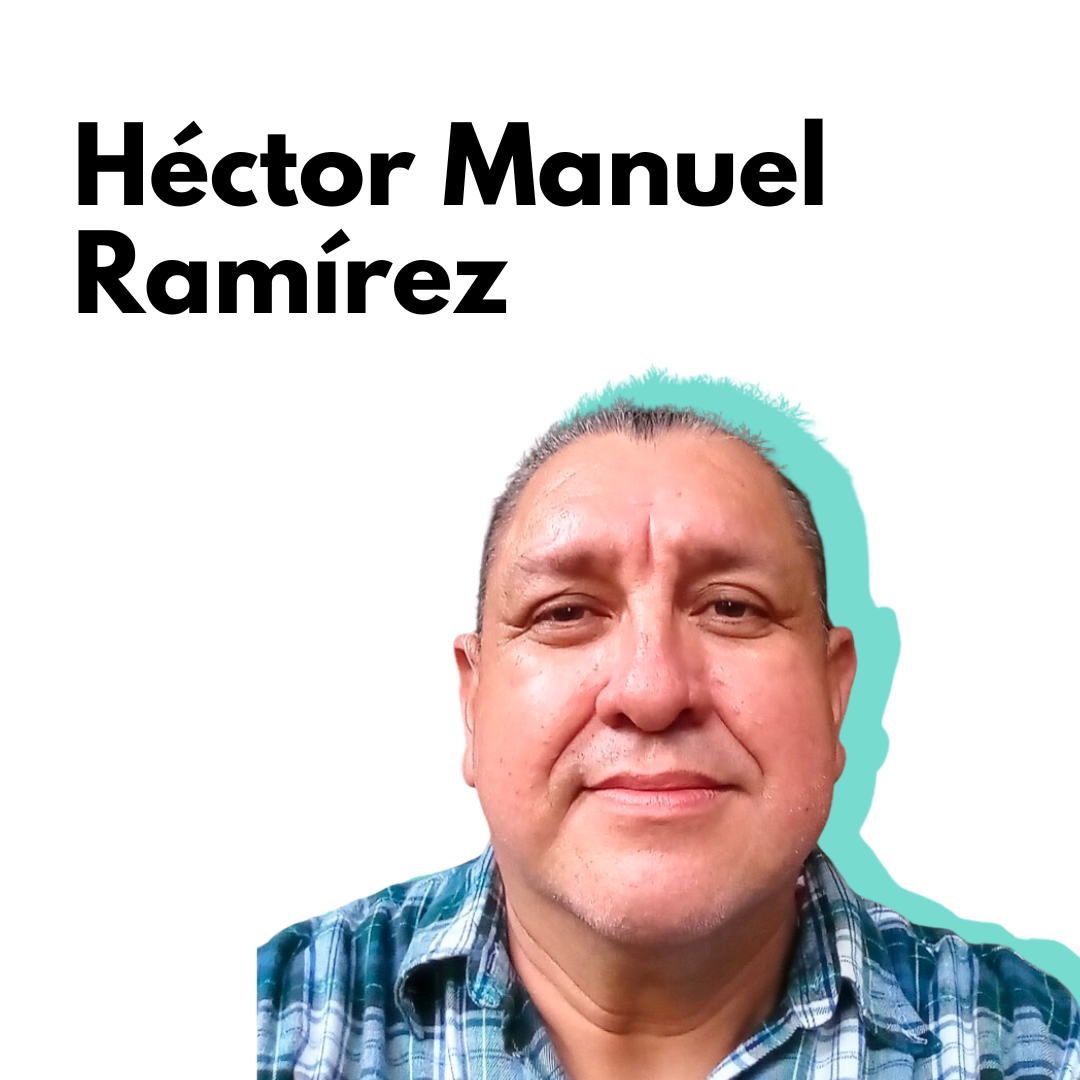
Héctor Manuel Ramírez
Meet Héctor Manuel Ramírez. They are a disability advocate who has devoted their life to volunteering and serving and do so on various boards across Los Angeles County and the state of California. Ramírez is a Board Member for Disability Rights California and serves on the Board of Directors for the National Disability Rights Network. Héctor is focused on increasing mental health services for immigrants, and they currently serve as a Chair for All Underserved Cultural Communities and Latino Underserved Cultural Communities under the Los Angeles County's Department of Mental Health. This year, they joined the California Commission on Disability Access to help make the state more accessible for everyone.
Héctor works closely with county, state, and national organizations as well as policy makers to advocate for meaningful legislation that reduces mental health disparities. Their advocacy work in this area has been instrumental in increasing access to mental health services for individuals with disabilities in California.
 Jules Edwards
Jules Edwards
Meet Jules Edwards. Jules is a neurodivergent Anishinaabe writer, gardener, accountant, and disability justice advocate. She is the parent of neurodivergent Afro Indigenous people and a care provider to many neurodivergent children throughout the years. Jules is passionate about building community and works to improve child safety and disability policy.
She blogs as “Autistic, Typing” on her website and social media. Her first book, I Will Die On This Hill: Autistic Adults, Autism Parents, and the Children Who Deserve a Better World, was co-written with Meghan Ashburn.
Jules’ professional development includes a Leadership Education in Neurodevelopmental Disabilities fellowship, an Association of University Centers on Disabilities National Training Director Council fellowship, and a 2022-23 Wilder Foundation Community Equity Program fellowship.
She is on the Board of Directors for the Autistic Women & Nonbinary Network (AWN), co-founder of Minnesota Autistic Alliance, board member for the Minnesota Ombudsman for American Indian Families, and board member of The Arc Minnesota. She is the elected chairperson of the Minnesota Autism Council, a workgroup of the Senate Human Services Reform Finance and Policy Committee. Her culture shapes her worldview and decision-making, and she is committed to making the community a better place for generations to come.
Thanks for reading our blog and for learning about these fantastic Deaf, disabled, and chronically ill Native leaders, artists, and activists who are Indigenous to or currently residing in the United States. We encourage you to follow them and keep up with their work.
Who would you like to see added to this list? Share other disabled Native folks who should be recognized with us on social media!
Leave Us Your Comments
Please do not leave requests for assistance in the comments. Blog comments are not monitored by intake staff and your request may not be seen. Visit our Online Intake Page to request our services.
Commenting is not available in this channel entry.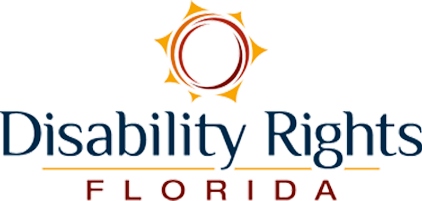
Comments